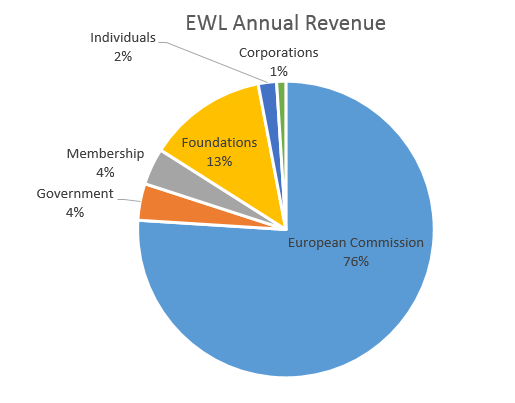By Leo Cendrowicz
Belgian entrepreneur Isabella Lenarduzzi thought she had made it when her communications and events firm was bought by the U.K.-Netherlands publishing giant Reed Elsevier in the 1990s. The takeover allowed Lenarduzzi, then in her 30s, to sit on Reed’s board of directors. But she had a terrible time at the top. “The board was only filled with men, all about 20 years older than me,” she says. “When they looked at me, they just saw a woman, not an entrepreneur. They never took me seriously at all.”
Lenarduzzi’s experience will be familiar for many women in corporate board positions. Yet in a sense, they are the lucky ones: many more miss out on the boardroom altogether. Indeed, the European Commission says that only 13.7% of board members at large, listed European companies were women in 2011, a slight improvement on the 11.8% in 2010, but well below the organization’s 40% target. Nordic countries boast the best numbers, with women now filling one quarter of executive positions on average, while southern Europe fares much worse. In Italy and Portugal, only 6% of executives are women. According to a study last year by Deloitte, women made up just 12.2% of the boards at more than 1,700 U.S. listed companies.
In Europe, efforts are now under way to help women smash through the glass ceiling once and for all. In the run-up to International Women’s Day on Thursday, European Union Justice Commissioner Viviane Reding announced this week the first step toward setting legal targets for the minimum number of females in top jobs in Europe. “I am not a great fan of quotas. However, I like the results they bring,” Reding said Monday as she launched a three-month public consultation on initiatives aimed at redressing the gender imbalance, including possible quota legislation.
Reding is keen to follow the example of Norway, which imposed a 40% quota for women on boards in 2003 and now has the world’s highest female representation at the executive level. Not everyone supported the mandatory quotas at the beginning; some in Norway’s corporate sector argued that shareholder democracy would be compromised and unqualified women would be promoted. Nine years later, however, many skeptics have changed their tunes, especially with regard to fears over incompetent women rising to the top. Researchers have also found that more female board members has helped boost corporate transparency by breaking up back-room deals and old boys’ networks.
Iceland, France, Spain, Italy and Belgium have since introduced similar mandatory quota laws, and the Netherlands is expected to do so this year. The public also seems to support quotas, in theory. According to a recent survey by the E.U.’s official polling agency, three out of four Europeans say they back laws to ensure that women with equal qualifications get the same access to top jobs as men.
But surprisingly, there are some women who don’t support the move. Charlotte Hogg, an executive at the British bank Santander who also sits on Oxford University Press’ finance committee and the board of BBC Worldwide, said she’s “not a fan of quotas at this stage.” While she supports gender equality in the workplace, she says quotas may go too far. “It is important that women participate as they want to in society, whether in local government, charities or schools,” she tells TIME. “Quotas that focus only on corporate boards feel to me like they would miss that point of broader participation and also get to the point where there was a risk to quality.” Marina Yannakoudakis, a British Conservative member of the European Parliament, says women should get top jobs based on merit alone. “These women [who are currently on boards] were selected because they were the best people for the job. Had they made it to the top by virtue of quotas it would have been nothing short of patronizing,” she says.
Despite progress in passing gender-equality legislation, the reality is that corporate culture is slow to change, says Cécile Gréboval, head of the European Women’s Lobby, an umbrella group of more than 2,000 women’s associations. “I think the reason for this is fear about change — it affects the heart of power in business,” she says. Quotas may not be a perfect solution, but she says no one has come up with a better way of boosting women’s representation at the top echelons of corporate power. “If quotas work, and women truly achieve equality, then I will be out of a job,” she says. “I hope that happens, but I don’t expect this any time soon.”
Tracey Carr, founder and CEO of the diversity training company Eve-olution, says women are also deterred by the way male-dominated boards operate, particularly the cliquey networking that goes on. The system is stacked against them — and it’s self-perpetuating. “Women leaders are motivated by values rather than fast cars and fat-cat salaries,” she says. “I’ve coached a lot of men. Their corporate ways are not necessarily malicious — it’s how they compete against each other. But it is off-putting for women who go in: they are shocked and they don’t want to play that game.”
Isabella Lenarduzzi experienced the isolation on a male-dominated board firsthand. “Whenever I took the floor to speak, I could see they were not really listening,” she tells TIME. “They would refuse initiatives I made which I felt would have been accepted if they had been brought by a colleague. I felt alone, I was not really part of the group.” After three frustrating years, she stepped down. She has continued to launch new businesses, most notably JUMP, a network of some 180,000 women entrepreneurs worldwide. And she gives advice to women who, like her, have struggled against stereotyping about their leadership capacity.
“I’ve seen many women quit their careers because they were not respected by the company,” she says. “But now companies are accepting the need to change the mindset, and learning to value the differences between men and women. They recognize that they need to use human capital from a variety of backgrounds and experiences.” However, it may take a long time — or legally enforced quotas — before that recognition translates into seats in the boardroom.
Read more: http://www.time.com/time/world/article/0,8599,2108607,00.html#ixzz1oZ5pTJsZ


